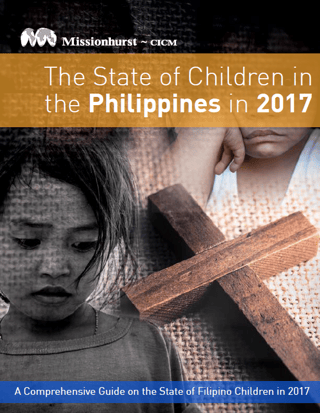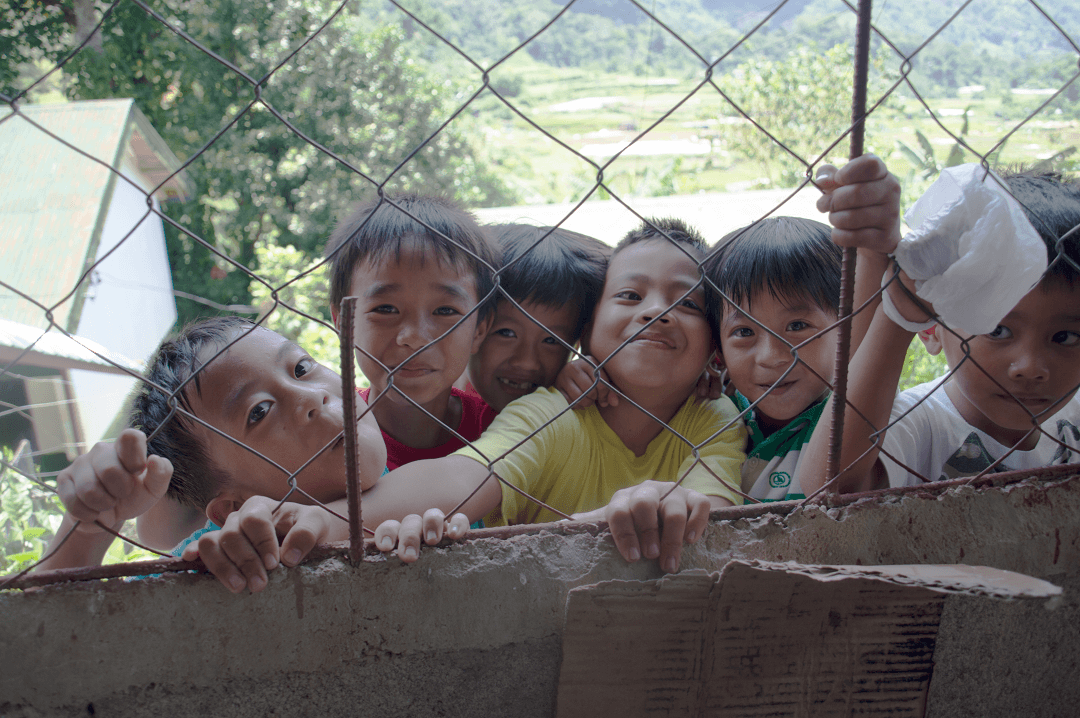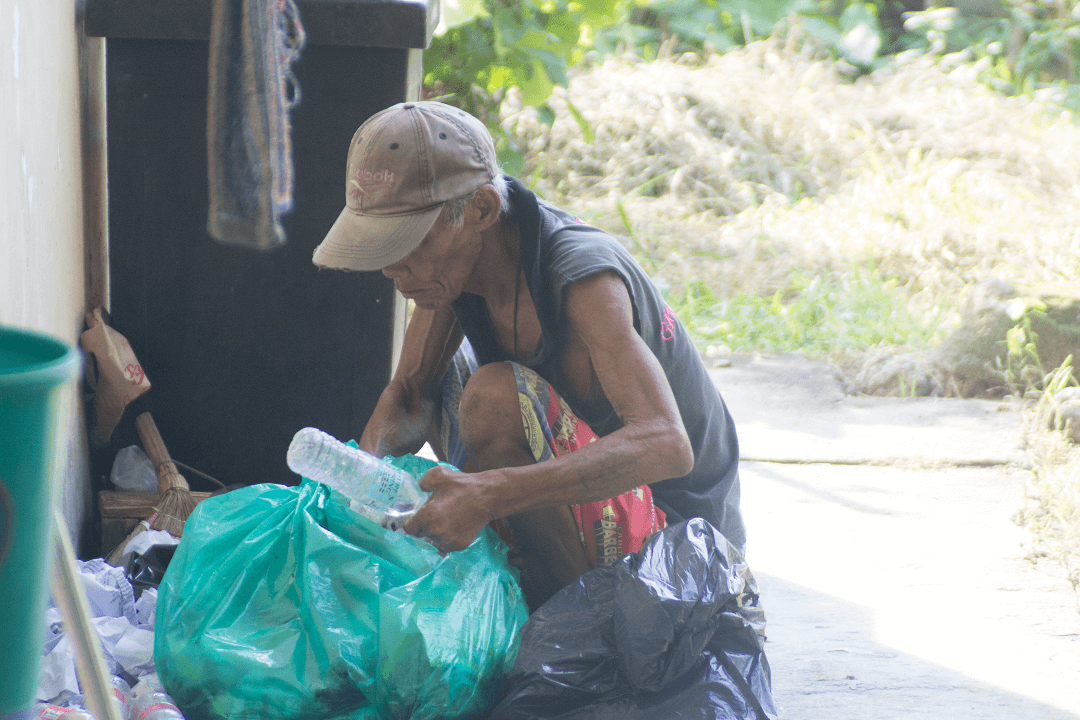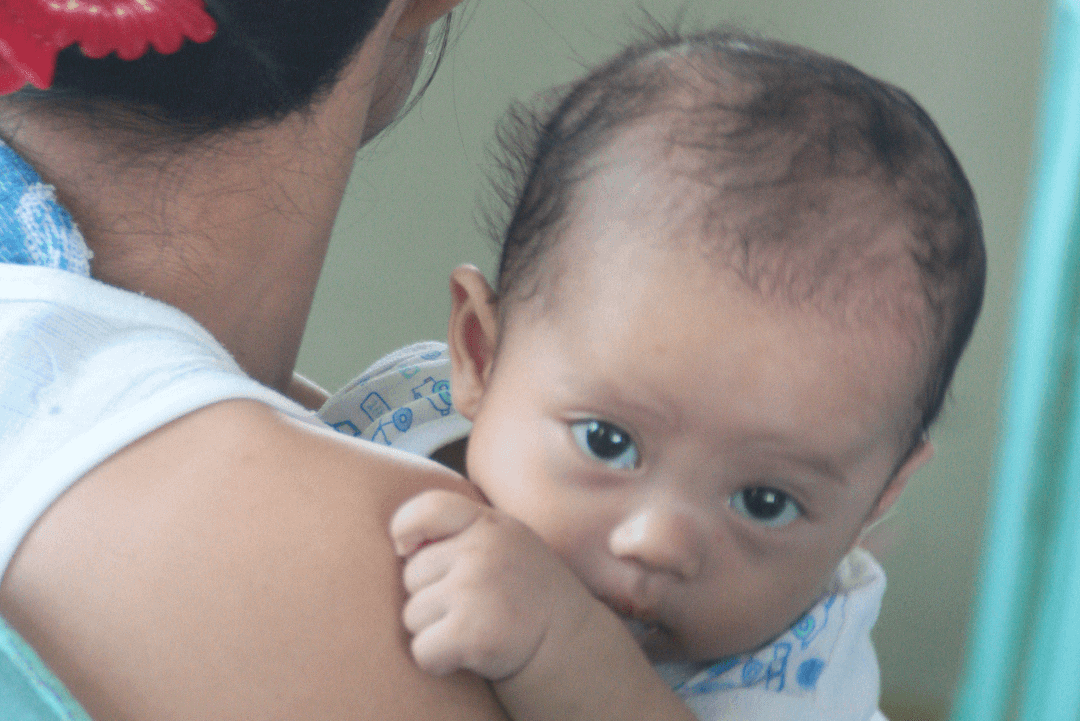The Philippines Needs Your Help
Join Us and Help
#BeHisHands for $7 a month
"Yours are the hands, yours are the feet, yours are the eyes, you are his body. Christ has no body no won earth but yours."
~ St. Teresa of Avila
Join Us and #BeHisHands Today
Sign up to find out how to help
Here’s What We’re Doing To Help
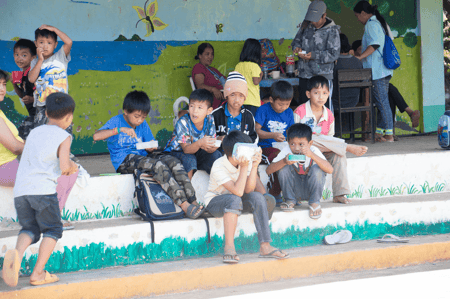
The Half-Way Home for Boys
Many male children are homeless due to abuse, abandonment, family economic distress, or separation or death of the parents. Fr. Costa established a Half-Way Home for Boys, which provides not only basic physical needs but emotional and psychological care as well.
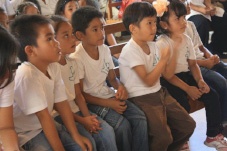
The Welcome Home Foundation
The Welcome Home Foundation, a non-government organization that offers temporary residential programs, pre-school, and education resource programs for deaf people in the community.
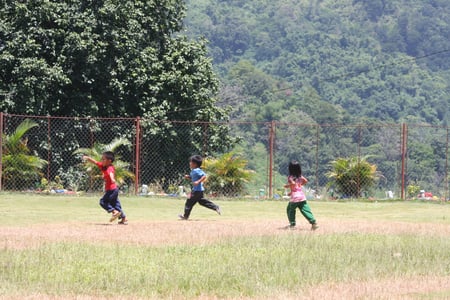
THE SUNFLOWER CENTER
Sunflower Children’s Center envisions itself as a community of socially involved professionals at the service of the welfare of children. To provide psychotherapy for children with special concerns or difficulties; To provide psychological assessment for children-clients; To work hand in hand with families and other helping professionals by providing appropriate recommendations to help children with concerns.
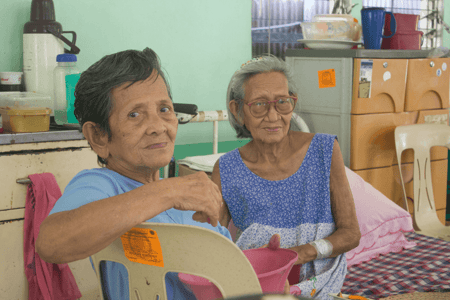
THE LEPER COLONIES OF THE SOUTHERN PHILIPPINES
Fr. Jean Eddie first came to know the Missionhurst order when he was in minor seminary in his home country of the Congo. For the past nine years, Fr. Eddie has served the poorest of the poor in a remote part of the Southern Philippines. He primarily works with the members of a local nomadic tribe who are cut off from mainstream culture by prejudice and lack of access to basic services like education.
Here’s How You Can Help
We need 50 people willing to give a monthly gift of $7 to help us keep our programs running
2017 Report: The State of Children in the Philippines
A Comprehensive Guide on the State of Filipino Children in 2017
“It is difficult to learn about the suffering of children, especially those whose lives seem so far removed from ours. A feeling of helplessness can build, and at this point you may be wondering, “What could I possibly do to alleviate their suffering?”
We hope this guide will give you insight into the social issues the Filipino community, especially children, struggle with every day. We ask that as you read this guide you will pray with us for relief and comfort over our Filipino brothers and sisters.
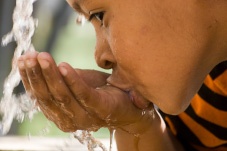
Today, 8 million Filipinos rely on unimproved, unsafe, and unsustainable watersources and 27 million lack access to improved sanitation.
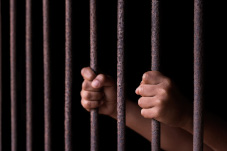
60,000 to 100,000 children in the Philippines are involved in prostitution rings, while an undetermined number of children are forced into exploitative labor operations.
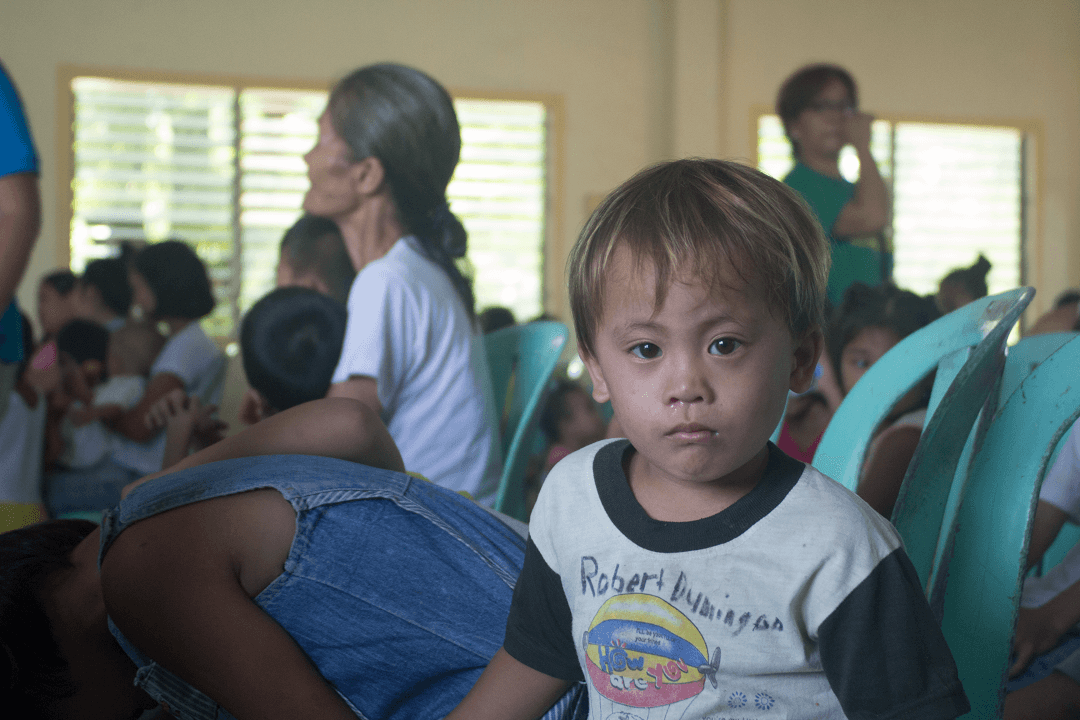
Boys who do not attend school are typically engaged in child labor: in 2014, there were 2.15 million working children between the ages of 5 and 17.
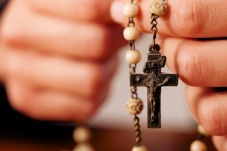
In 2017, the Philippines made global news when Islamic State-linked militants attacked the city of Marawi in Mindanao. Hostages are still being held, including at least one Catholic priest.
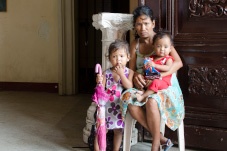
An estimated 11 women die every day from complications of childbirth, most of which are preventable with basic education, nutrition, access to clean water, and skilled birth attendants.
Poverty in the Philippines
How much money does the average Filipino live on each day?
The average Filipino lives on $2.00 per day (or less), with 19.2% of the population (about 18 million people) living below the international poverty line of $1.25 per day. This poverty is exacerbated in rural communities where many families have more than six children living at home, as well as aging relatives who need extra help.
Do children have access to clean water?
Unfortunately, many children--especially those living in poor rural areas--do not have access to clean water. In a population of 101 million, eight million Filipinos rely on unimproved, unsafe, and unsustainable water sources and 27 million lack access to improved sanitation. This leads to outbreaks of Dengue fever (carried by mosquitoes who thrive on standing water) as well as gastroenteritis, typhoid, and cholera, all of which can be fatal to children.
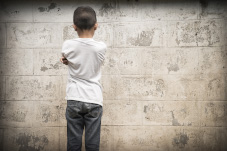
The Philippines is a “source country” for human traffickers worldwide: It also serves as a transit country for traffickers transporting slaves, and even as a destination for some traffickers.

Government and law enforcement officials have been implicated in sex trafficking schemes: either by participating in/purchasing slaves, or turning a blind eye to the practice. According to UNICEF, “Some corrupt officials, particularly those working in immigration, allegedly accept bribes to facilitate illegal departures for overseas workers, reduce trafficking charges, or overlook unscrupulous labor recruiters.”
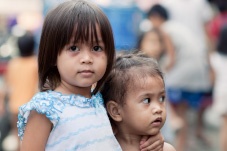
Poverty and regional instability are the two greatest risk factors for children: Children from impoverished families are lured into the sex trade or exploitative labor by traffickers promising to help their families survive. Local taxi drivers are often in cahoots with traffickers and will take children to secret locations to meet with clients.
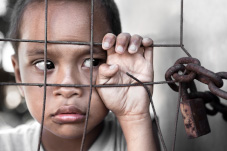
Close family members (including parents) sometimes facilitate sex slavery out of desperation for basic resources: According to UNICEF, “Very young Filipino children are coerced to perform sex acts for live internet broadcast to paying foreigners; this typically occurs in private residences or small internet cafés and is facilitated increasingly by victims’ close family relatives.”
Help Us Fight Sex Trafficking
Become a SponsorEducation in the Philippines
While education is a priority in the Philippines, there are still several obstacles to creating a basic elementary and high school educational system that can meet the needs of Filipino children.
According to USAID, these obstacles include “weak governance, constrained public finance, lack of infrastructure,” and a generally poor quality of teacher training and lack of access to effective educational resources and diagnostic tools.
Three government agencies oversee the different levels of education in the Philippines: DepEd for basic education, CHED for tertiary and graduate education, and TESDA for technical-vocational courses and middle education. Despite the governmental oversight, many children still do not have access to quality education due to their need to work to help support their families.

Half of Filipino children who die before their fifth birthday are newborns.
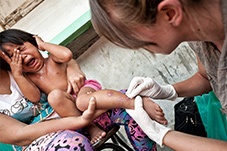
Deaths among children below 5 remain highest in the poorest sectors of society, in rural areas, and among families with low educational status.
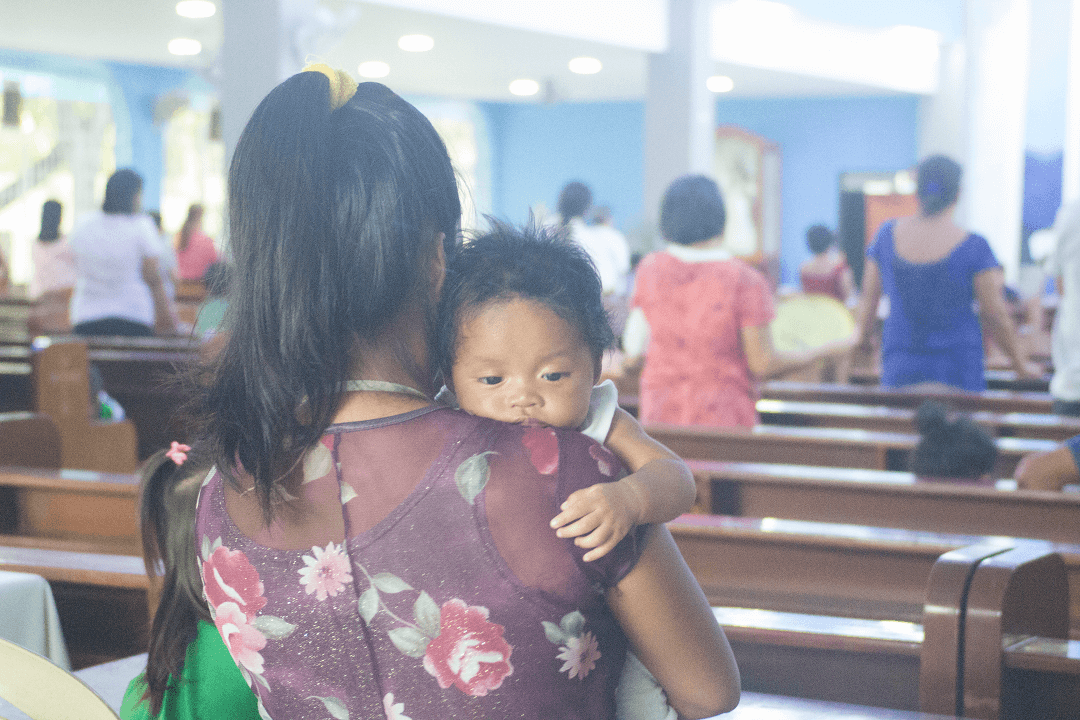
An estimated 11 women die every day from complications of childbirth, most of which are preventable with basic education, nutrition, access to clean water, and skilled birth attendants. Their children do not fare well because of a lack of understanding about the value and mechanics of breastfeeding, proper nutrition for babies, sanitation, and lack of available basic vaccinations.
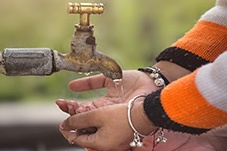
As stated above, many children do not have access to clean water, which causes a plethora of health and development problems.
How does the government help or hinder quality health care for the nation’s children?
In the Philippines, the number of under-5 deaths has been halved in the past twenty years, thanks both to government and nonprofit health initiatives.
The National Health Insurance Act of 2013 gave Filipinos living in poverty unprecedented access to subsidized health care, but the poorest children are still 3.2 times more likely to go without essential health care than wealthier Filipino children are.
Unfortunately many families do not know how to use their PhilHealth cards, and even when they do, the benefits are often inadequate in comparison to the health needs the poorest Filipinos face. Families may not be able to afford necessary prescription drugs, and may end up returning to the hospital again and again.
How can people in the international community help?
Support Missionhurst missionaries who are working to improve health care and living conditions in the Philippines, specifically among abused and neglected children as well as children with special needs.
Support Healthcare Initiatives in the Philippines, such as Catholic Relief Services, which provides water sanitation tools and hygiene kits to poor families.
Fast in solidarity with the undernourished children of the Philippines; offer your fast as a prayer for them and for those who are working to provide healthy food for Filipino children.
Help Us Advocate for Better Healthcare
Become a SponsorThe Half-Way Home for Boys is a fully operational shelter providing a full range of services not only to the boys, but also to their families. Since young street children in the Philippines are easy victims of crime and abuse The Half-Way Home for Boys helps to keep them safe from the constant dangers they face. Missionhurst missionary Fr. Geraldo Costa shares with us his experience with the children as the director and lead therapist.

